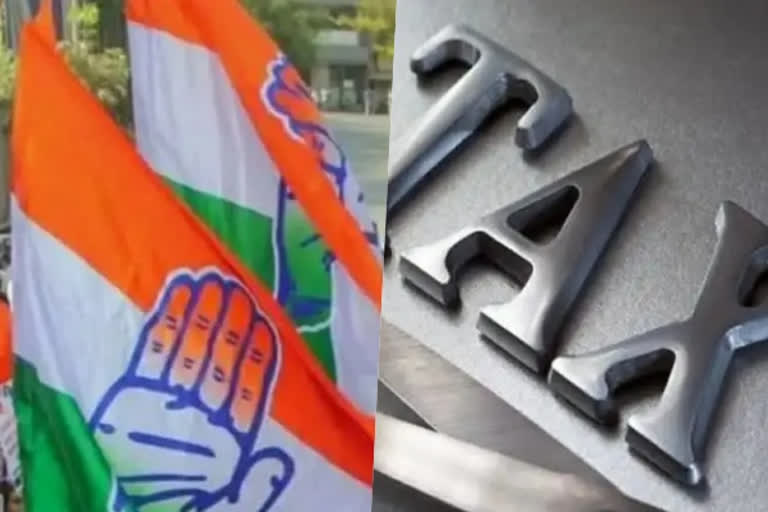New Delhi: The Congress on Tuesday tried to woo the middle-class by alleging that salaried persons paid income tax at a peak rate of 30 per cent while the tax of corporates was reduced during the pandemic years. On September 20, 2019, the government announced the corporate tax cut from a base rate of 30 per cent to 22 per cent for existing firms without exemptions/incentives and from 18 per cent to 15 per cent for new manufacturing units.
But no such relief was given to the salaried class hit later by the pandemic. “Tax cuts given to middle and lower-income groups increase consumption and, as a result, employment. Why is the same not explored? Why does “suit-boot sarkar” hate the middle and lower-income class,” Congress spokesperson Prof Gourav Vallabh said.
He alleged that over the past 3 years, the government repeatedly claimed that the Corporate Tax cut would help increase corporate tax collection. However, the parliamentary Committee on Estimates, in its report submitted on August 8, 2022, has put out different claims saying the corporate tax cut of 2019 had resulted in a negative “revenue impact” of ₹1.84 lakh crore.
Former IIM Bangalore Professor Rajeev Gowda averred that the Indian economy was in a bad shape even before the pandemic hit and was dented further by the Centre’s policies. “The corporate tax cuts did not help boost the economy which was the main objective. Neither did the government provide some relief to the middle class by cutting fuel taxes,” he said.
“When you try to counter them with hard statistics, they just cite a fresh date by when the Indian economy would be developed. This will go on,” he said. Citing data from the Centre for Monitoring Indian Economy, Prof Vallabh further said that the corporate tax cut contributed to the increase in corporate profits but didn’t raise corporate tax collections, as expected by the government.
Also read: PM should address nation to spell out reasons for him not taking on China on border row says Rahul
Citing an RBI research paper, Prof Vallabh alleged that the corporate tax cut had been utilized by the companies in debt servicing, build-up of cash balances and other current assets rather than restarting the capital expenditure cycle. In fact, in the financial year 2022, capital expenditure grew by a mere 2.3 per cent, a six-year low, said Prof Vallabh.
“So, there was no investment or job creation due to the corporate tax cut in India, and above this, corporate tax collection fell from ₹5,56,876 crore in the financial year 2020 (actual) to ₹4,57,719 crore in financial year 2021 (actual) despite the increase in corporate profits,” he said. “Tax cuts for the rich lead to higher income inequality in both the short- and medium-term. In contrast, such reforms do not significantly affect economic growth or unemployment,” he said.
To further prove his point, the Congress leader pointed out that after the corporate tax cut, a new record was made when corporate tax collection in the financial year 2021 (₹4,57,719) fell below income tax collection (₹4,87,144 crore). He further projected that for the financial year 2022, corporate tax cuts may result in a revenue loss of more than ₹1 lakh crore, which would be sufficient for transferring ₹20,000 per annum per family to the bottom 20 per cent of families.
Prof Gowda also said that the aim of welfare economics is to pull people out of poverty levels and not to benefit the corporates, who don’t use tax relief for job creation. In comparison, tax relief to the salaried class leads to more consumption and creates demand in a sagging economy. The Congress leader also questioned the timing of the corporate tax cut announcement saying it was made exactly 2 days before the ‘Howdy Modi’ event organized on September 22, 2019, in Houston, USA.
The corporate tax cuts he said came amidst fiscal distress as in the same month the Finance Minister had told states at Goa’s GST Council meeting that the Centre had no money and wouldn’t be paying the GST Compensation anymore.



